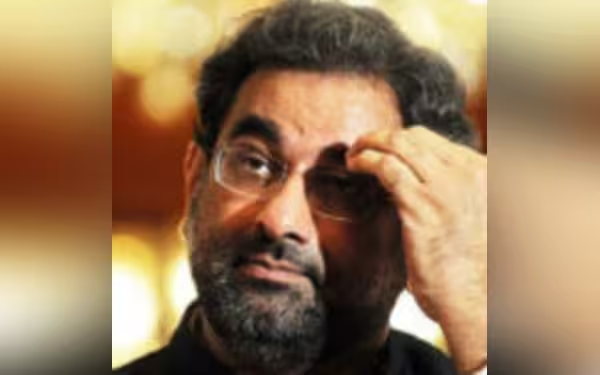Saturday, November 16, 2024 05:54 PM
Abbasi Raises Alarm Over Proposed Amendments to Weaken Judiciary
- Abbasi warns amendments threaten judicial independence.
- Calls for public debate on constitutional changes.
- Criticizes government for lack of transparency.
 Image Credits: pakistantoday
Image Credits: pakistantodayShahid Khaqan Abbasi warns proposed amendments may weaken judiciary, urging public debate and transparency in Pakistan's legislative process.
MULTAN: In recent developments, former Prime Minister Shahid Khaqan Abbasi has raised serious concerns regarding proposed constitutional amendments in Pakistan. He argues that these amendments are designed to weaken the judiciary and place it under the control of the executive branch of government. This situation has sparked a significant debate about the independence of the judiciary and the role of public opinion in the legislative process.
During an interview with a private television channel, Abbasi expressed skepticism about whether current Prime Minister Shehbaz Sharif had thoroughly reviewed the draft of these amendments. He criticized the government for failing to involve the public in discussions about such crucial changes. Abbasi described the way these amendments are being introduced as akin to “banditry,” emphasizing that making changes “in the dark of night” is not a transparent practice.
Abbasi's remarks highlight a growing frustration among political leaders regarding the government's approach to constitutional reform. He questioned the government's apparent disregard for the views of the citizens, stating, “You think the people of this country are stupid and have no right to express their opinion?” This statement underscores the importance of public engagement in governance and the need for transparency in political processes.
Furthermore, Abbasi called for the draft of the proposed amendments to be made public, advocating for a thorough debate lasting three to four months before any presentation to Parliament. He believes that such discussions are essential to ensure that the amendments do not undermine judicial independence or restrict the political participation of certain individuals.
While acknowledging that the judiciary has made mistakes in the past, Abbasi stressed that reforms should not come at the cost of the judicial system's integrity. He urged the government to respect the Supreme Court’s ruling on reserved seats, recalling how previous leaders, including Yusuf Raza Gilani and Nawaz Sharif, faced consequences for ignoring judicial decisions.
Reflecting on history, Abbasi noted that similar attempts to amend the constitution in the late 1990s were met with strong opposition from his party, ultimately leading to the abandonment of those efforts. This historical context adds weight to his current arguments, suggesting that the lessons of the past should inform present actions.
Abbasi's call for a more transparent and democratic approach to constitutional reform resonates with many who value judicial independence and public participation in governance. As Pakistan navigates these complex issues, it is crucial for the government to engage with its citizens and ensure that any changes to the constitution reflect the will of the people. Only through open dialogue and respect for judicial authority can the country hope to achieve a balanced and fair political system.













